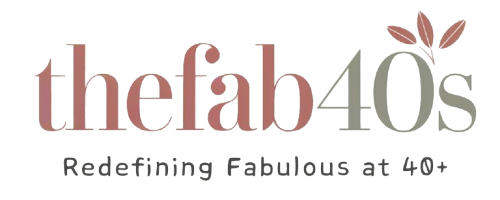Career Change Advice for Women Over 40 | Career Tips
This page may contains affiliate links. We may earn a commission for purchases made at no additional cost to you. The content on this website was created with the help of AI.
Many women over 40 feel a strong urge to change careers. This urge is a call to explore new paths and find where they truly belong. I, too, felt this urge at 41, moving from a corporate VP role to a career coach, writer, and podcaster.
We offer midlife career change guidance to light your way. We know the journey ahead can be challenging but also rewarding.
Women face big challenges in their careers, with a 98% power gap. But, changing careers can be a powerful move. With AI changing jobs, now is the time for smart career change advice for women over 40.
Changing careers can lead to better retirement plans or higher salaries. 55% of workers want to keep working after retirement.
But, there are obstacles like family duties and living costs. We face these challenges together. With transitional career support, like networking, we can overcome them.
In the next pages, we’ll share strategies to refresh your career. We aim to empower you and redefine what it means to be a woman over 40 in the workforce.
We promise to support you with care and knowledge. We’ll blend our experiences with your dreams. We’re here to be your partner on this journey.
Understanding the Desire for a Midlife Career Pivot
At some point, the path we’ve followed may feel like a routine sacrifice rather than a path to fulfillment. For many women over 40, this is a turning point. They start thinking about a career pivot. This isn’t just about switching jobs; it’s about finding a job that truly matches their passions.
It’s important to understand why women over 40 want to make a change. And how they can use career transition tips to make a successful career pivot.
The High Cost of Current Career Sacrifices
Often, a midlife career change is sparked by feeling that the sacrifices are too high. Long hours, a bad work culture, and limited growth opportunities can all lead to a desire for change. Women at this stage are not just looking for a new job. They want a role that values their skills and respects their well-being.
Striving for Autonomy and Control at 40+
As women get older, they realize how important autonomy in their careers is. At this stage, controlling their work-life balance is crucial. The rise of remote work offers a new kind of freedom, attracting those thinking of a career pivot.
This desire for autonomy is not just about flexible hours. It’s about having a say in their career path. For many, this is a key factor in exploring new career options.
Navigating New Developmental Stages and Priorities
Midlife is a time of reflection, where personal and family responsibilities shape one’s career goals. Whether it’s caring for parents, spending time with children, or pursuing hobbies, these life stages prompt a reevaluation of career goals. What once seemed fulfilling may now seem lacking, leading to a search for new career paths that align with these priorities.

As industries evolve and old job securities fade, a midlife career change is seen as a necessary realignment. Career pivot strategies and career transition tips for women over 40 recognize their unique position and value. The journey may be complex, but the rewards of aligning passion with career are rich, offering a new chapter and a renewed sense of purpose.
The Impact of Age on Professional Identity and Career Change
Age can greatly affect one’s professional identity, sometimes creating barriers in career changes. For women over 40, changing careers is more than just a job switch. It’s about overcoming age-related biases in the workplace. We aim to fight ageism and highlight the value of experience and maturity in the job market.
Assessing the Societal Views of Age in the Workforce
Even though more adults over 50 are working, society’s views haven’t caught up. With over 108 million people in the U.S. aged 50 or older, it’s time to challenge age stereotypes. Sadly, only 8 percent of companies include age in their diversity efforts, showing a big gap in valuing age diversity.
Professions like accounting and law still have mandatory retirement, ignoring the skills of older workers. These policies not only limit careers but also miss out on the wisdom and experience of older professionals.
Combating Ageism with Empowerment
Empowerment is key in fighting age stereotypes at work. By debunking age myths, we open doors for career changes at any age. We provide resources to highlight the value of life experiences and wisdom.
Job ads that use terms like “digital native” or “high energy” often exclude older candidates. We fight these biases by pushing for inclusive language and practices. This ensures that professional identity is based on skills and experience, not age.
We offer career change resources to help people adapt and succeed in new careers, regardless of age. Joining writing groups or taking online courses can be very helpful for those redefining their careers in their 40s and beyond.

Overcoming age biases in the workplace is tough but rewarding. Together, we can create a world where all ages are valued and respected. Let’s make later years a time of growth and innovation, not just a time to slow down.
Key Steps to a Successful Career Transition After 40
Changing careers in midlife comes with its own set of challenges and opportunities. We’ll look at practical steps and strategies for a smooth transition. These are especially helpful for women over 40 looking to start anew in their careers.
First, it’s important to tackle internal fears. Concerns about money and what others think can hold you back. Christine O’Neill’s story at 48 shows it’s never too late to start over, even with family and financial responsibilities.
Networking is a key job search strategy. Sites like LinkedIn are crucial. They help you connect with people in your desired field, offering valuable insights and chances. Talking about your career change with family and friends, as Sherry Ellis advises, helps them understand and support you.
Overcoming self-doubt is another crucial step. Experts like Babita Spinelli stress the need to let go of negative thoughts. Trying out new roles through volunteering or part-time work can also help you feel sure about your decision.
Using your transferable skills is also key. Skills you’ve built over the years can open doors to new opportunities. They provide a solid base for your career pivot.
- Think about your past achievements and skills that are widely useful.
- Highlight leadership, management, and communication skills in your resume.
- Look into professional development courses to fill any skill gaps.

Statistics show the benefits of a career change at midlife. 90% of people say they’re happier, and 50% see their income rise. Moreover, 72% feel refreshed and renewed after making the switch.
| Statistic | Impact |
|---|---|
| 90% happier post-change | Increased life satisfaction |
| 50% experience salary growth | Financial stability and growth |
| 72% feel like a new person | Personal rejuvenation |
In conclusion, taking these steps can greatly help in your career transition after 40. By embracing change and getting support from those who understand you, you can confidently move into this new phase of your career.
Overcoming Gender-Specific Obstacles in Career Change
Women often face unique barriers in their career paths. Understanding and overcoming these obstacles helps us grow personally and professionally. It ensures we have equal chances for success.
Women changing careers after 40 face special challenges. These challenges come from societal expectations and work environments. They make starting new careers tough.
One big challenge is the confidence gap. Women may doubt themselves more than men, even with the same skills. Overcoming these doubts is key to fairness in the workplace.
Addressing the Gender Gap in Midlife Professional Growth
Gender inequality is still a big issue in the workforce, especially for women in midlife. A lot of young women are not working, studying, or training. This shows we need support systems for women’s professional and personal challenges.
Bridging the Confidence Divide for Women in New Careers
To close the confidence gap, we need to support women’s career growth. This means creating environments that offer feedback and opportunities to build confidence. Women do well with regular feedback and chances to take on new challenges.
- Role models are very important in STEM fields, where women are underrepresented.
- Support from peers helps women succeed in industries dominated by men.
- Getting into networks and finding opportunities is crucial for women’s career advancement.
Working to overcome these challenges is not just about fairness. It’s about making our workforce better. By helping women, we help everyone.

We must support each other in career changes. Together, we can make workplaces more inclusive and fair. We can bridge gaps and build a better future.
Career Change Advice for Women Over 40: How to Navigate the Shift
Changing careers can feel overwhelming, especially for women over 40. But, with the right strategies, you can find a new role that fits your strengths and experiences. Remember, your age brings valuable knowledge and a unique view that many industries need.
Did you know 60% of workers feel disconnected from their jobs, and 19% are unhappy? For many women over 40, changing careers is a must. Let’s explore how to smoothly make this transition.
- Reassess Your Skills: Skills mapping is key to seeing your transferable skills. Look at your past roles and find skills that many industries want.
- Seek Out Guidance: Advice from peers and mentors is powerful. Talk to experienced people who can offer valuable insights.
- Prepare Strategically: Take career aptitude tests to find where your strengths are. Also, making a business plan can guide your path.
- Educate and Upskill: Learn new skills. Use formal education or online platforms like YouTube to grow your skills and find new jobs.
By using these strategies, you’re not just preparing for a career change. You’re also setting yourself up for a more fulfilling professional life. The goal is to thrive, not just survive, in your new career.
As you look for new opportunities, remember your experience is a strong base for any new role. With the right mindset and preparation, changing careers can be exciting and rewarding. By focusing on advice for women over 40, we can help you smoothly transition into a career that’s rewarding and matches your personal and professional goals.
Effective Approaches to Seeking New Opportunities
Exploring new career paths after 40 is both challenging and full of opportunities. It’s key to use professional networks, career change resources, and confidently explore new paths. These steps can greatly improve your career transition plan.
Leveraging Professional Networks for New Career Pathways
A strong professional network is vital for a career change. It can open doors to new industries and roles. For example, a sales executive with 15 years of experience can use client connections to show their skills.
This approach not only shows they can communicate well. It also proves they’re good at keeping professional relationships. This makes them a strong candidate for new career paths.
Utilizing Career Change Resources and Support Systems
Planning and support are key for a smooth career transition. Career coaching helps highlight your skills and achievements. It makes you stand out in new industries.
Online courses provide practical skills, making you a strong candidate. According to the U.S. Department of Labor’s O*NET database, focusing on specific skills can attract employers.
Personalized coaching, education, and insights into industry trends are crucial. They help you set goals and use resources effectively. This ensures a successful career change.
| Career Transition Fact | Detail |
|---|---|
| Personalized career coaching influence | Identifies skills and achievements pertinent to new industries |
| Role of professional networks | Enhances opportunities in uncharted career fields |
| Training resources suggested | Online courses and certifications tailored to fill the existing skill gaps |
Strategies for Professional Development in a New Field
Starting a new career is exciting and necessary for many over 40. They seek not just change but significant growth. Today, we focus on professional development for women in these transformative times. Let’s explore key strategies for a successful career transition.
Continuous education is key for a fresh start. Acquiring certifications in fields like cybersecurity or leadership workshops is vital. Networking is also crucial. It opens doors to new industries through established connections.
Here are actionable steps for women to navigate successful career transitions:
- Define Specific Career Goals: Clear goals help you focus on which skills to improve and opportunities to seek.
- Identify Transferable Skills: Recognize and highlight skills like project management, communication, and critical thinking for new roles.
- Update Your Resume: Make your resume reflect your current and new skills.
- Expand Your Network: Join webinars and groups specific to your new field.
- Engage in Mock Interviews: Improve your interview skills and boost confidence in new roles.
Here are some careers that many have found fulfilling at this stage:
| Career Path | Relevance | Required Upgrade |
|---|---|---|
| Healthcare Administration | High demand, stable | Specific certifications in healthcare management |
| Cybersecurity | Growing need for security professionals | Technical training and certifications |
| Freelance Content Creation | Flexibility, creative expression | Skills in digital platforms and SEO |
Starting a new career chapter after 40 is about thriving, not just surviving. With the right career transition strategies and dedication to professional development for women, a fulfilling career is within reach.
The Financial Implications of Changing Careers at Midlife
Exploring a career change in our prime years is exciting but comes with financial challenges. A new path in midlife offers opportunities but requires careful planning. It’s important to understand the financial aspects of such a shift.
Planning for a Potential Initial Salary Decline
Changing careers at midlife might mean a lower starting salary. Roles like management consultant or college professor could require salary adjustments. It’s key to know your current finances and the new job’s pay.
Having an emergency fund for 3 to 6 months can help during this time. It acts as a safety net against unexpected costs.
Maximizing Financial Resources and Retirement Plans
Another key aspect is keeping your retirement plans on track. Career changes can impact your savings and benefits. It’s crucial to research how your new job will affect your retirement funds.
Using benefits like tuition reimbursement or exploring part-time jobs can be smart. These options can help you earn while learning.
- Research potential expenses and income specific to your desired role.
- Understanding benefits impacts, including changes in healthcare and retirement contributions.
- Explore using current skills in a different capacity or industry to minimize financial disruptions.
It’s important to consider the full impact of these changes. Taking small steps towards your new career can help. This approach reduces financial and emotional risks.
| Strategy | Benefit | Consideration |
|---|---|---|
| Emergency Savings | Financial security | Buffer against unexpected expenses |
| Tuition benefits | Minimize education costs | Maximize existing employer benefits |
| Part-time transition | Continuous income | Reduces financial strain |
Getting advice from financial experts and career coaches is wise. They can help you manage salary changes and retirement plans. Their guidance ensures you can maintain your lifestyle and pursue your dreams.
Embracing Technological Advances and Industry Shifts
We stand at a thrilling crossroads. Emerging job market trends, especially adapting to AI, ask us to rethink our careers. For women over 40, this change is not just a challenge but a chance to grow and thrive.
Adapting to AI and Emerging Job Market Trends
Artificial intelligence is now a part of many industries. To adapt to AI, we need technical skills and a willingness to learn. This shift opens up new career paths, like AI ethics officers and machine learning facilitators.
AI also changes what skills are needed to succeed. Upskilling is key. By keeping up with new tech, we become more adaptable and boost our career chances.
Upskilling for the Future in a New Career
Upskilling is a smart move in today’s job market. It lets women over 40 refresh their careers with in-demand skills. Skills like tech savvy, adaptability, and learning agility are crucial. Getting these through courses can increase our skills and confidence.
| Top Career Change Skill | Why It Matters |
|---|---|
| Tech Savviness | Essential for staying relevant in an increasingly digital workspace. |
| Adaptability | Key to managing career transitions smoothly amid industry changes. |
| Learning Agility | Maintains competitiveness and proficiency in new technological applications and tools. |
| Self-Marketing | Amplifies visibility and opportunities in new fields. |
| Decision-Making | Crucial for strategic pivots and capitalizing on new career opportunities. |
By embracing these changes, our careers grow in new ways. Understanding AI, upskilling, and staying current with job trends prepare us to lead in new fields.
Mental Health Considerations When Switching Careers
When we talk about career changes, especially for women over 40, we must look at mental health too. It’s key to understand how career satisfaction, mental health considerations, and ways to mitigate stress play a role. This knowledge is crucial for a smooth transition.
Mitigating Stress Through Support Systems
Reducing stress is vital when starting a new career. Having a strong support system is essential. This can include friends, family, or even online groups.
Seeking advice from those who have made similar career changes can be very helpful. They offer both practical tips and emotional support. Online counseling and local workshops are also great resources. They help keep your mental health in check during this challenging time.
The Impact of Career Satisfaction on Overall Well-being
Finding career satisfaction is more than just making money. It greatly affects our overall happiness and life satisfaction. Research shows that women who change careers after 40 often feel happier and less stressed.
This new sense of purpose can lead to personal and professional growth. It makes life more fulfilling. Working in roles that align with our values and offer growth opportunities can greatly improve our mental health.
Job Search Strategies for the Aspiring Female Career Changer
Starting a new career after 40 is a bold move. It needs careful planning and smart actions. Women should use strong job search strategies and career transition tips to succeed. This journey comes with its own set of challenges and changing priorities.
Women over 40 can stand out by combining their work experience with new skills. Start by updating your resume. Show your experience and your ability to learn and adapt, proving you’re current with industry trends.
- Networking: Expand your network both online and offline. Go to industry events, join groups, and use LinkedIn to find jobs and meet people.
- Personal Branding: Create a story that shows off your diverse experiences and the fresh perspective you bring to employers.
Following career change advice for women over 40, be open to starting in roles that might seem like a step back. This can open doors to new and exciting career paths.
| Challenge | Strategies |
|---|---|
| Aged-based assumptions from employers | Highlight your ongoing learning and relevance in your resume. |
| Outdated skills | Take courses, workshops, and other educational chances to update your skills. |
| Unrealistic salary expectations | Do your research and be ready to negotiate from a strong position. |
| Viewed as a high hiring risk | Show your reliability, dedication, and experience in your applications and interviews. |
| Updating skills through volunteering | Look for volunteer roles that let you use and grow your skills. |
Every journey is different, but with the right mindset and job search strategies, the transition can be rewarding. See each step as a chance to reinvent your career and align it with your personal goals and passions. With these tips, you’re ready to start a fulfilling new chapter in your career.
Adapting to the Job Market: Resume and Interview Tips
Adapting to the job market as a woman over 40 has its challenges and opportunities. By improving your resume tips and interview strategies, you can boost your chances of getting the job you want.
Highlighting Transferable Skills and Experience
When moving to a new industry, focusing on transferable skills is key. Skills like adaptability, leadership, and communication are valued everywhere. A McKinsey study shows 87% of companies see skill gaps, especially in digital areas. Your ability to adapt and your extensive network are big pluses.
Strategies for Effective Self-Presentation and Branding
Good self-presentation goes beyond interviews. It’s about how you present yourself online. Personal branding means aligning your LinkedIn profile with your career goals. This is important since 87% of recruiters use LinkedIn to find candidates. Also, tailor your resume to match the job you’re applying for, a move 63% of hiring managers prefer.
| Strategy | Description | Impact |
|---|---|---|
| Modern Digital Skills | Enrolling in courses like Coursera’s “Digital Marketing Specialization” | Addresses skill gaps, with over 500,000 enrollments highlighting demand |
| Certification | Obtaining certifications like PMP to enhance earnings by up to 22% | Directly increases earning potential and marketability |
| Network Utilization | Leveraging existing professional networks | 85% success rate in job placement through connections |
| Resilience Display | Showing adaptability and resilience in your career narrative | Builds confidence in potential employers about long-term value |
Every detail matters, from your resume to how you talk about your skills. Use these strategies to stand out. Show your unique strengths with confidence. Soon, you’ll see doors opening in your new career.
How Personal Values Influence Career Change Decisions
For women over 40, personal values are key in making big career changes. They help guide these women as they look to change their careers. It’s not just a choice; it’s a must for lasting happiness and fulfillment.
Evolving life goals make us rethink what matters in our careers and lives. Maybe we want better work-life balance or to make a difference. These goals deeply shape our career choices, leading to paths that match our values and life goals.
Aligning Career Paths with Evolving Life Goals
As we get older, our goals change. For women in their prime, aligning their ambitions with life goals is crucial. Tools like the Barrett Model and Values Cards help define and prioritize values. This ensures career moves align with personal aspirations.
Assessing Cultural Fit and Value Alignment with Potential Employers
Evaluating cultural fit is vital when looking at new job opportunities. A match between personal values and company culture boosts job happiness and well-being. Knowing a company’s values helps avoid future unhappiness, creating a supportive work environment.
| Factor | Impact on Career Change |
|---|---|
| Cultural Misalignment | Leads to job dissatisfaction and reduced productivity |
| Values-Aligned Industries | Higher appeal, especially industries like Renewables for those with environmental consciousness |
| Flexibility and Planning | Essential for managing midlife career transitions effectively |
| Continued Learning | Coursera Plus and other learning platforms provide necessary upskilling opportunities |
In conclusion, for women over 40, aligning career with personal values, evaluating cultural fit, and adapting to evolving life goals are not just strategies. They are essential steps towards a fulfilling career. By seeking alignment and fit, they ensure professional growth and happiness in this life-changing phase.
Transitional Career Support: Mentorship and Coaching
Starting a new career after 40 is exciting but comes with its own set of challenges. Years of experience can be both a blessing and a barrier in new situations. Mentorship and career coaching act as guides, helping you through this transition.
Mentorship brings a wealth of knowledge and a listening ear for those figuring out their next steps. A mentor’s advice can give you direction and confidence in your career change.
Career coaching, on the other hand, offers a structured way to change careers. It helps you sharpen your skills and approach the job market strategically. Using transitional career support, like updating your resume or getting career coaching, is key.
Starting with part-time or freelance work can help you ease into new roles. This shows your dedication to growing personally and professionally. At this stage, you have the financial stability to explore new career paths.
There are many career paths and personal situations to consider. Whether you’re aiming for roles like Digital Marketing Specialist or Web Developer, or looking to use your skills as a Data Analyst or Product Manager, guidance is essential. For women over 40, mentorship can be especially empowering.
We encourage you to use networking and the power of mentorship and career coaching. They can help you confidently move forward in this exciting phase of your career and life.



